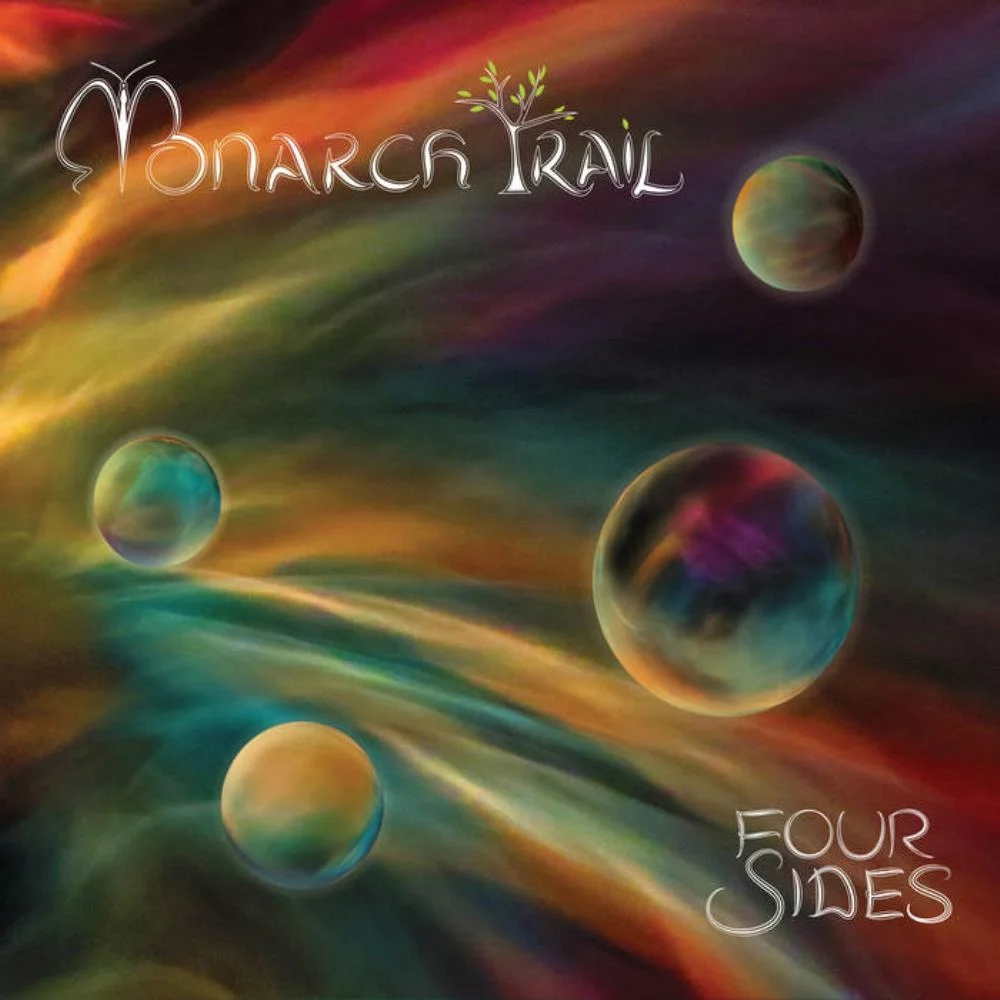 Canadian artist Ken Baird has sent another new prog butterfly into our progressive path, an always most appreciated gift for fans of melodic excursions that are forging forever forward, carrying all the classic tendencies that has crowned so many legendary albums. He would never claim himself as some experimental innovator but much more importantly, he is rather a truly dedicated fan of our beloved genre, with the added attribute of being a consummate musician who remains devoted to the cause. His output is deeply immersed in his own style having dragged along the same core of local and loyal musicians since his early days as a solo artist back in 1996.
Canadian artist Ken Baird has sent another new prog butterfly into our progressive path, an always most appreciated gift for fans of melodic excursions that are forging forever forward, carrying all the classic tendencies that has crowned so many legendary albums. He would never claim himself as some experimental innovator but much more importantly, he is rather a truly dedicated fan of our beloved genre, with the added attribute of being a consummate musician who remains devoted to the cause. His output is deeply immersed in his own style having dragged along the same core of local and loyal musicians since his early days as a solo artist back in 1996.
In another illustration of a recurring theme noticed in 2023 releases, this album kicks off with a monstrous epic, a nearly 23-minute rampage called “The Oldest of Trees”, a mythical melange of symphonic grandiloquence and contrasting moods that encompass a wide variety of internal prog styles, from pastoral and melancholic, to apostolic instrumental flurries on the church organ as well as a plaintive vocal passages full of fragility. Ken displays a dizzying proficiency on the various ivories at his disposal, ably propelled by the rhythmic duo of Dino Verginella on bass and drummer Chris Lamont. Baird also infuses guitars as well as recorder, thus the pace is maintained at all times, balancing extended vocal parts with vibrant instrumental excursions. Like a fog bound journey through the feudal Teutonic countryside, even mentioning the town of Bremen in the lyrics, the musical narrative maintains the appropriate soundtrack, with endless adaptation and cinematographic vision. Yes, there is a stout Wind and Wuthering feel here, as Ken does have a Tony Banks influence which cannot be denied, especially when the piano, organ and synthesizer work get the spotlight shining on them, most notably when they interplay with each other. He certainly ‘took us to a place where we could witness anything’ on this eventful journey. The mellotronic outro by itself, is worthy of rousing applause. A magnificent blockbuster that should rate very highly among fans of elongated progressive vehicles.
You want more? “Eris” enters the discussion with another nearly 20 minutes of instrumental prog experimentation, taking the restrained, not-in-a-hurry route with a lengthy yet gentle electronic snowstorm that evolves like a winter blizzard, somehow unnerving and portentous. At the 6-minute mark, a glowing church organ rafale illuminates the aural space, as if some celestial being arrives to provide deliverance. Its Eris, the second largest (and recently discovered) dwarf planet in the Solar System! Ken goes from Banks to Vangelis on a whim, selecting a further orbit in his search for deep space. Halfway through, the churning organ, snarly bass and shuffling drums combine to playfully assess the new horizons, channeling some ELP/Greenslade in the process. The repetitive piano coda is mesmerizing, as the hard bass carves a rough furrow, liberating the supernatural synth to take a lavish flight into the deeper recesses of the galaxy. Very old school and I like it!
Hey! More? “Twenty K” adds a 17-minute job to the set list, showcasing the persistent as well as ornate piano technique that Ken masters with obvious impunity, which leads me to hear hints of classic Supertramp in the arrangement, the lively hushed vocals full of drama only accentuating the overall feel. Add some synth work that emulates horns, solid bass and drum work and a series of Kelly Kereliuk lead guitar solos and it just may be the crime of the century. The mid-section orchestral blowout and extended piano recital elevates this piece to the loftiest heights, lush with vibrancy and creativity, perhaps the finest piece yet penned by the Butterfly Road man. The haunting vocal is hugely celebratory, a crowning voice that pushes the buttons with newfound glory as the theme veers into a new vista. The powerful finale is expressed in another realm altogether, warmly symphonic, and extraordinarily expressive, an ode to joy of the highest order, a glory drenched vocal to finish off ‘the time has come to head home’. Speechless.
Just under 10 minutes short (LOL), “Moon to Follow” swerves into a more melody driven environment with a sorrowful hushed vocal, elegant piano as well as dreamy atmosphere, vaporously romantic and highly infectious. Steve Cochrane guest on electric guitar, giving the track luminosity and injecting well warranted passion. The inventive piano shifts the arrangement into a lounge-like jazzy shuffle that is wholly unexpected, eliciting smiles I am sure, continuing on with a pastoral Wakemen-esque ivory outbreak, that serves to reignite the heartfelt vocalizings within an angelic finale.
A beautiful keyboard exercise if offered on “Afterthought”, rippling piano and whistling synth combining with unfettered passion. A prefect ‘au revoir’, as an afterthought, of course! What is truly remarkable about this album is how within each composition, there is a continuation, as well as a sonic progression that just keeps evolving without going into any extremes, the layers perfectly sown into each tapestry, lovingly displayed for all to hear. Its perhaps titled 4 sides but it has 5 tracks.
5 postscripts








